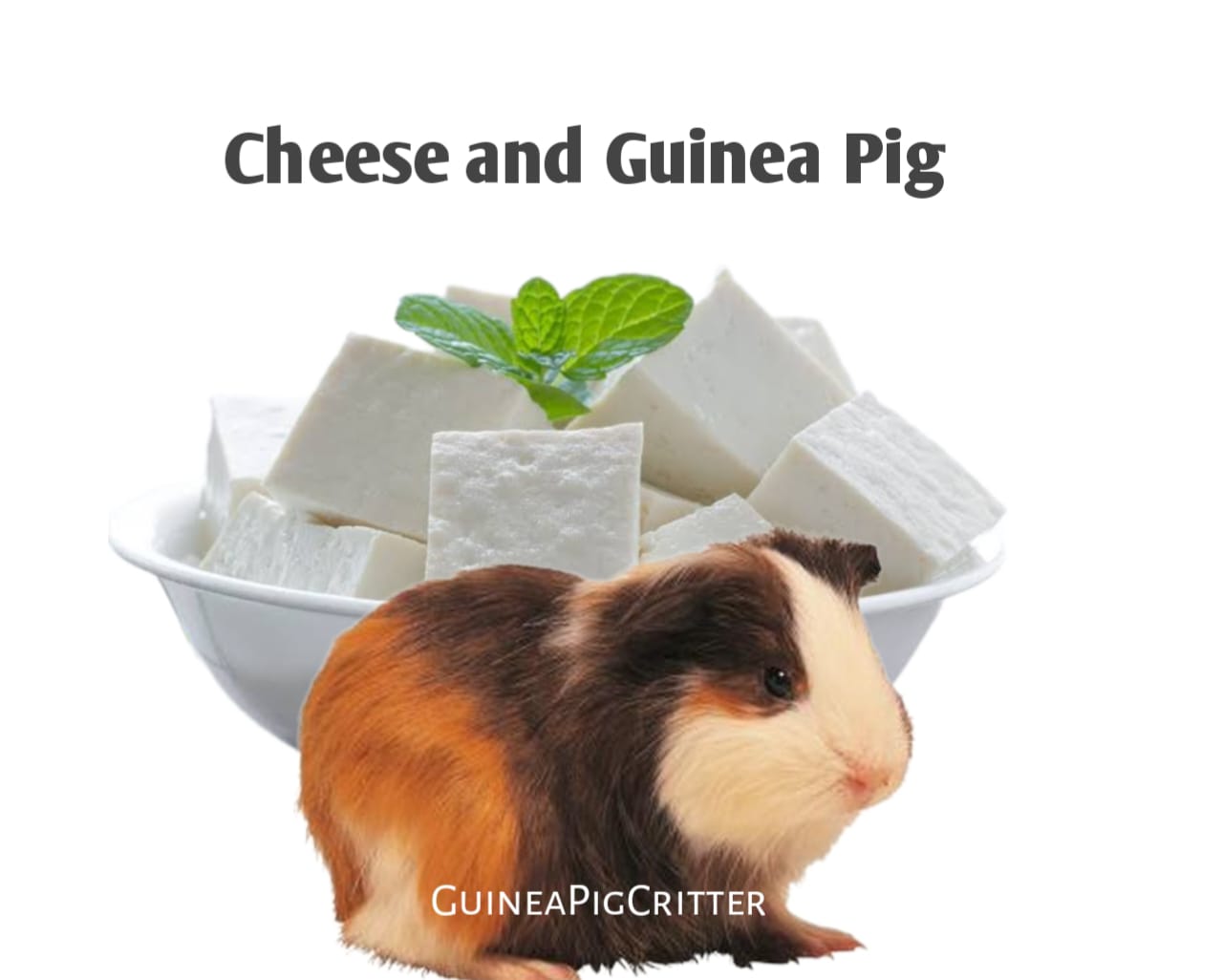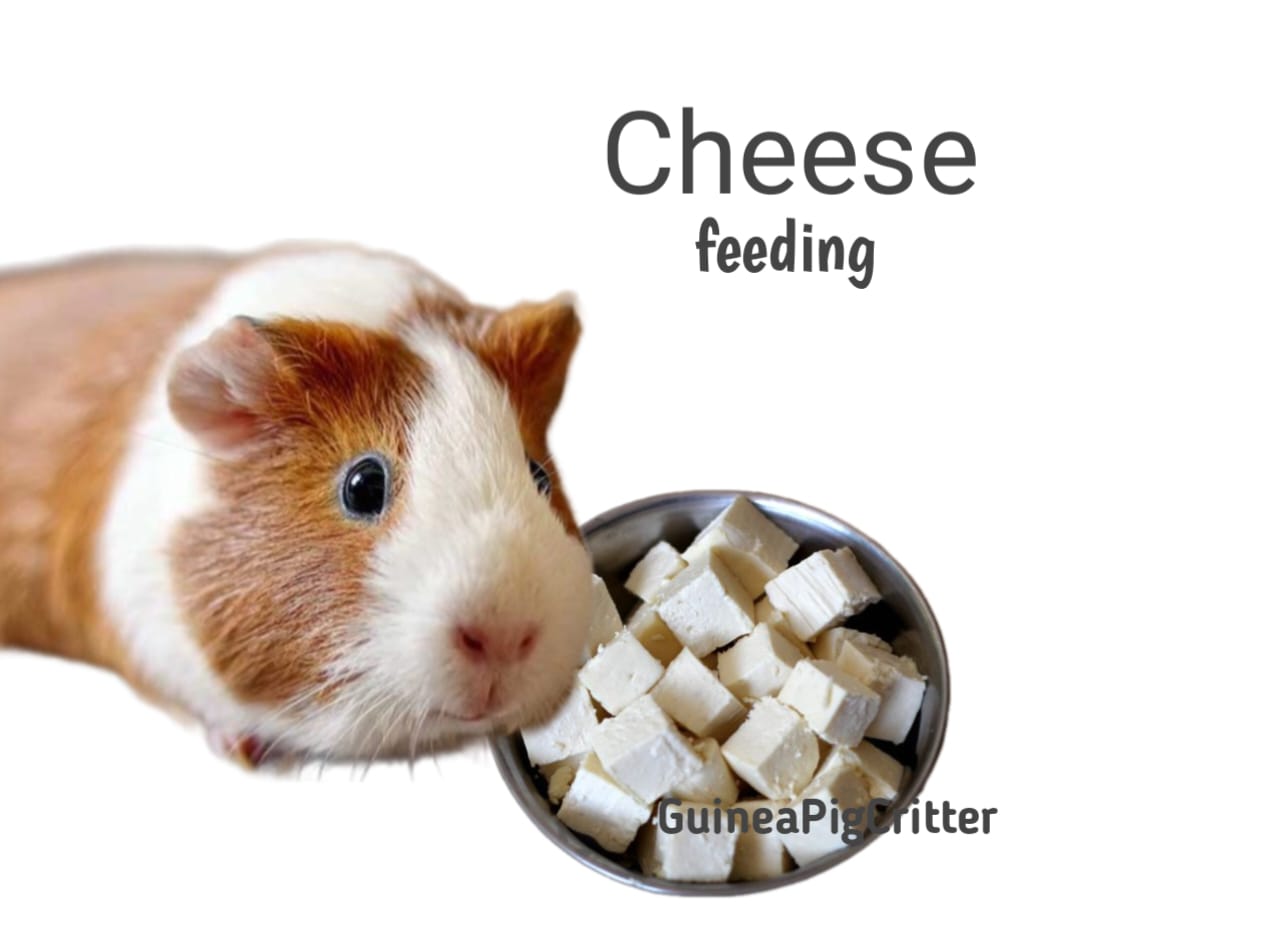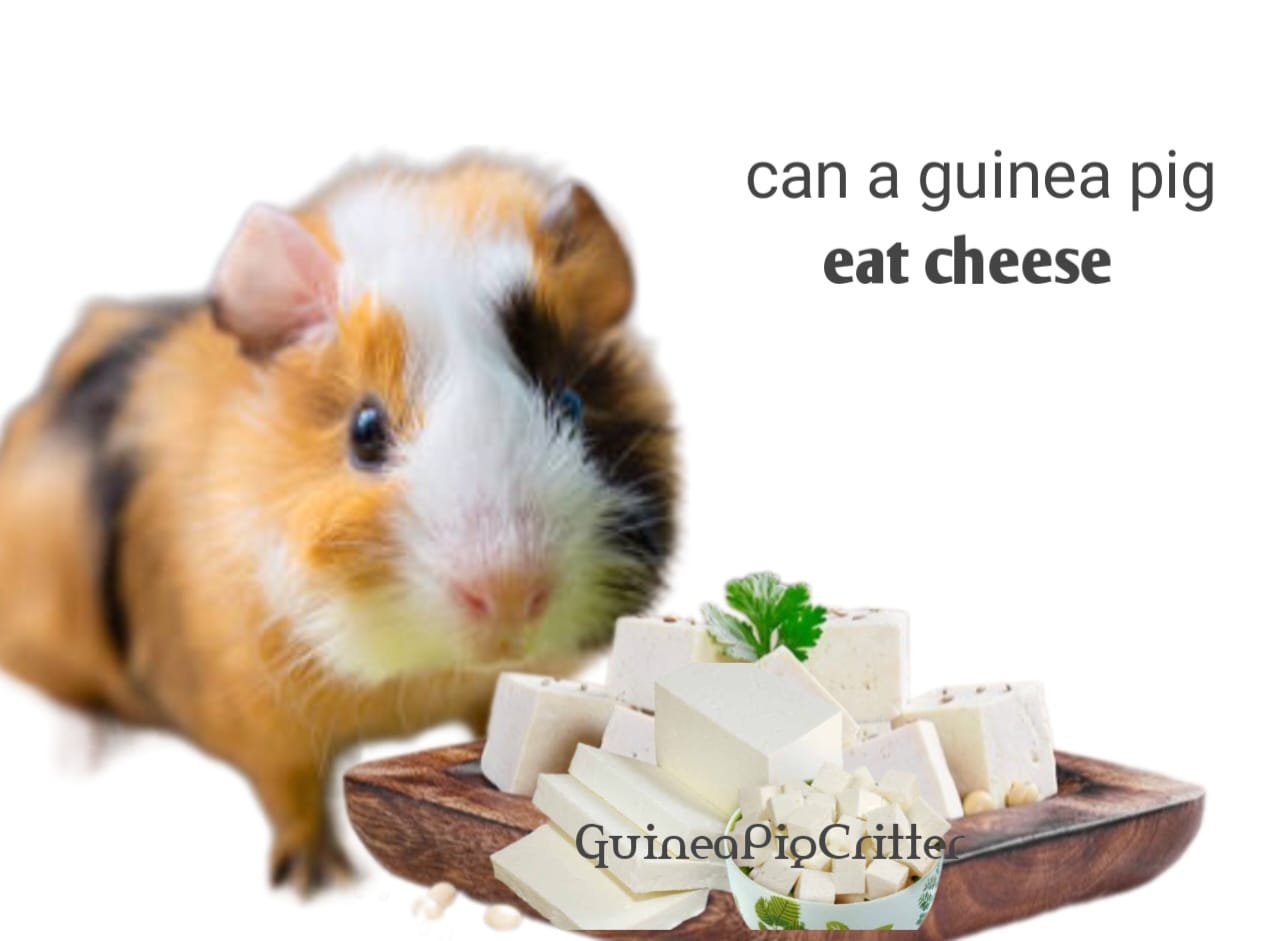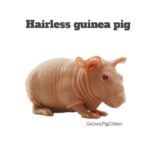Guinea pigs are tiny pets adored for their docility and lively spirit. But, with regard to their diet, they have certain needs that are very important for their health and survival. As a responsible pet owner, it is necessary to find out what foods are safe for guinea pigs and those which should be avoided.
One such query commonly asked is whether guinea pigs can eat cheese? It is a common food in many people’s diets but does it qualify as being part of the meal of a guinea pig? Let us take an in depth look at this issue so that we may get better answers.
When you think about cheese, most times it comes with indulgence-cheesy pizzas, sandwiches etcetera. Although people love cheese as a favorite snack, one must keep in mind that there are different dietary needs involved when it comes to guinea pigs. Our stomachs cannot digest all the things that we love eating while theirs cannot tolerate any kind of food.
Therefore, this article will explore whether or not guinea pigs can consume cheese and will also outline some of the potential risks associated with them in addition to healthier alternatives for your beloved pet who happens to be one.
Read also :-Can guinea pigs eat oranges?
Is cheese safe for guinea pigs?
To comprehend the basic dietary needs of guinea pigs, it is necessary to first answer this question. These small rodents are herbivorous animals and their food should mainly consist of vegetation. Fresh vegetables, hay, and a little fruit all form the basis of a balanced guinea pig diet. On the other hand, guinea pigs differ significantly from omnivores or carnivores since they do not necessarily need animal products due to lack of body adaptations for efficient digestion of such foods.
Conversely, cheese is manufactured dairy product made from milk. It is rich in calcium, protein and fat; however, these nutrients could be detrimental to your guinea pig. In particular, the high fat content in cheese as well as its lactose and general richness renders it unsuitable for small animals like these.
Why guinea pigs should not eat cheese
Lactose intolerance
One of the primary reasons why cheese does not work with guinea pigs is that they cannot digest lactose. Lactose exists in milk as well as other dairy products. For one to digest lactose there must be an enzyme called lactase present in his/her body which breaks down into glucose and galactose.
Although young ones produce enough enzyme for processing mother’s milk but it fades with time. As adults mature then they cease producing enough enzyme needed for breaking up lactase efficiently hence can’t break down lactose effectively.
Cheese or any other dairy product given to a guinea pig can upset digestion and result in bloating, flatulence, and diarrhea. Guinea pigs are especially troubled by these indications because they have very fragile gastrointestinal systems. Immediate attention must be paid to severe digestive problems since it can bring more health conditions.
Richness in fat
The other worry about feeding guinea pigs on cheese is its high-fat content. Cheese fat levels exceed the required amounts in a guinea pig’s diet. The consumption of fatty foods would cause obesity among guinea pigs which is also a major concern for well-doing(health).
Their joints become affected by obesity hence limiting their movements while other complications like cardiovascular diseases may occur.
Additionally, another reason why cheese should not be fed to guinea pigs is that they require low-calorie and high-fiber meals as per their specific energy requirements. Their energy equation will be tampered with once you introduce such high calorie food items into their diet like cheese leading to unhealthy weight gain.
It does not bring nutritional benefits
Cheese may contain calcium and protein, but these minerals are not especially useful to the guinea pigs in this form. Guinea pigs need calcium, however much of it can cause bladder stones which is a painful condition that could be dangerous too. Moreover, cheese contains proteins that are unnecessary for cavies who can get enough of the latter from plants.
Therefore, guinea pigs need cheese as a vital source of vitamin c on a daily basis. Guinea pigs cannot produce their own vitamin c like other animals do, so they must get it through food. Lack of enough vitamin c leads to scurvy characterized by weakness, listlessness and joint pain.

Various risks associated with feeding cheese to guinea pigs
Digestive problems
As said earlier, lactose contained in the cheese can result in severe digestive problems for the guinea pig. If your guinea pig consumes dairy products there might be signs like diarrhea or bloating or even gas in its stomach. Such symptoms may lead to discomfort and cause agonizing pain for your pet.
In case such severe digestive complications go untreated ending up in dehydration among other complications then veterinary intervention will be required .
Guinea pigs have a sensitive tract and any interference with their routine digestion can have serious results. For instance, a condition called gut stasis may take place where the digestive system slows down or stops moving food through the intestines. This is life-threatening if not promptly addressed.
Long-term health risks
Apart from immediate gastrointestinal problems, feeding guinea pigs cheese can result in long-term health problems. Obesity is one of them as mentioned earlier. Overweight guinea pigs may suffer joint issues, decreased mobility and reduced quality of life.
Moreover, cheese contains high amounts of calcium that can lead to bladder stone formation leading to urinary challenges that might necessitate an operation.
Another long term risk of feeding cheese to guinea pigs is malnutrition. They will not be able to get all the proper nutrition they need from their regular diet if it includes items like cheese on a daily basis or at any other inappropriate time. Consequently, essential nutrient deficiencies may develop which weakens their immune system and makes them easily susceptible to diseases.
What to do if your guinea pig eats cheese
Sometimes accidents may happen and your guinea pig might find its way around some cheese. In case of this, it is essential to avoid panic but act immediately to ensure that your pet is in a good condition.
Monitor your guinea pig
First, watch out for various signs of digestive upset such as loose stool, gas or change in behavior. When you realize any of these symptoms, the best thing to do is remove foods that are rich from their menu and offer them some fresh hay and water. Such foods can soothe their digestive tract and prevent further complications.
Consult a veterinarian
In case of severe symptoms like continual diarrhea, tiredness or loss of appetite by your guinea pig; it is important to see a vet as soon as possible. They will help you manage the symptoms and maybe give advice on how to cure them so as not to cause discomfort for the animal.
See this post: Can Guinea Pigs Eat Tomatoes?
Healthy alternatives to cheese for guinea pigs
However, just because guinea pigs can’t eat cheese doesn’t mean they should be denied tasty snacks! There are several other healthy alternatives which should be part of their diet.
Fresh vegetables
With regard to guinea pigs, a significant amount of vegetables should be in their diet. Examples include bell peppers, carrots, cucumbers as well as leafy greens like romaine lettuce and spinach. It is notable that these vegetables are all essential sources of important nutrients such as vitamin c, fiber and antioxidants for the good health of your guinea pig.
Fruits
Although they have high sugar levels hence, should be given sparingly, fruits can make a good snack for your guinea pig. The best choices are apples without seeds, strawberries, blueberries and watermelon. Remove any seeds from them and then cut them into small pieces that your guinea pig can easily swallow.
Herbs
Furthermore parsley, cilantro or basil are fresh herbs that you might provide to your pet guinea pigs. In addition to giving them something different to eat these herbs also contain more useful nutrients.
Hay and pellets
It is worth noting that every single time the diet of a guinea pig should consist mainly of fresh hay meeting the highest standards as well as formulated pellets meant specifically for it. While promoting digestion system’s healthiness and keeping its teeth strong through hay provision; pellets provide a comprehensive combination of various nutrients.

Frequently asked questions (FAQs)
Can guinea pigs eat any other dairy products?
No dairy products including milk, cheese and yoghurt should not be taken by guinea pigs since it may lead to serious health problem due to lack of ability in digesting this food items by their bodies.
Are there any exceptions to feeding cheese to guinea pigs?
No, no exception is safe. Guinea pigs should not eat cheese whether it’s blue or yellow.
What are the signs of lactose intolerance in guinea pigs?
Symptoms of lactose intolerance in guinea pigs include bloating, diarrhea, discomfort and gas. The only time you will notice these signs is when your guinea pig has taken dairy products like milk.
Can small amounts of cheese be safe for guinea pigs?
It does not matter if only a little bit of cheese is used because this could still have an adverse effect on a house pet. They simply can’t cope with dairy foods in their diet, so they’re best avoided altogether.
What should i feed my guinea pig instead of cheese?
Rather than using cheese as food for your pet, try giving it fresh vegetables such as fruits that provide vitamins and minerals along with hay and pellets made specifically for guinea pigs which contain all the necessary nutrients a well fed cavy needs.
Conclusion
Cheese is therefore, not a safe or appropriate guinea pig food. This can be attributed to their difficulty in digesting lactose, high fat percentage and lack of nutritional value. As such, cheese should not be fed to guinea pigs as it may cause stomach problems for them, contribute to obesity and also lead to long-term health complications. Instead, ensure that your guinea pig stays happy and healthy by giving it balanced diet consisting of fresh vegetables, fruits, hay and pellets.


